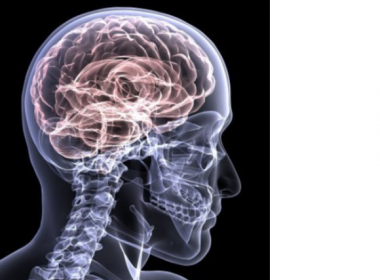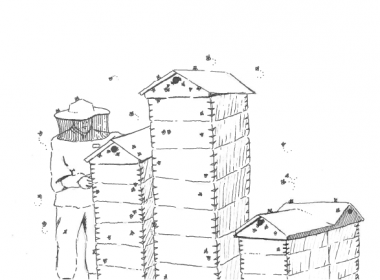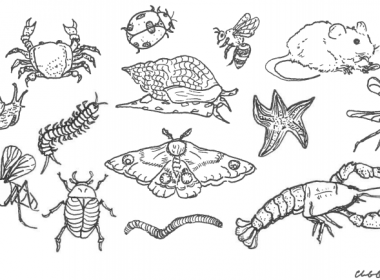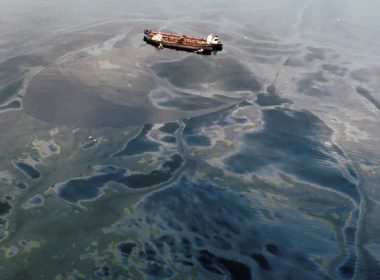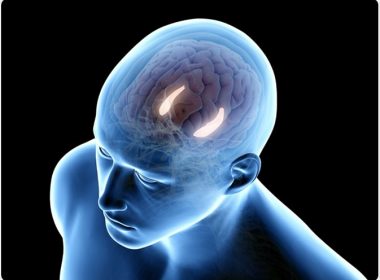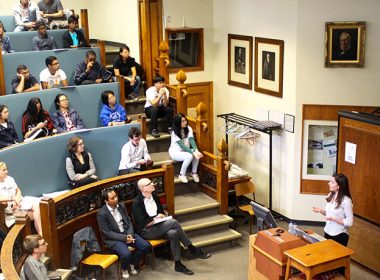While thousands of sports-related concussions occur each year in Canada, the mechanisms behind the injury are still shrouded in mystery. Scientists use the word ‘concussion’ to describe the symptoms of damage inflicted on the brain, but they are still working to uncover the underpinnings at the cellular level. Concussions occur[Read More…]
Research Briefs
Mapping nature’s contributions to people
Currently, the United Nations (UN) estimates that there are approximately 7.7 billion people in the world, a number that is expected to reach 10 billion by 2050. Moreover, human populations are becoming more dense: 68 per cent of people are expected to live in urban centres by 2050. As these[Read More…]
Testing Darwin’s ecological questions
Rarely does the title of a scientific study live up to the aspirations of its authors. The BIG Project, however, is an exception. BIG, which stands for the Biotic Interaction Gradients experiment, is the first endeavour of its kind to explain one of Charles Darwin’s oldest theories: Species interactions play[Read More…]
Small but mighty: Arctic bacteria are capable of cleaning up oil spills
Historically impassable, the ice cover of the Northwest Passage along Canada’s Arctic coast has thinned over the past few years, piquing the interest of the shipping and luxury cruise industries. This thinning, along with Arctic drilling, makes the legendary frozen passage particularly susceptible to oil and fuel spills. To combat[Read More…]
Searching for a home away from home
Scientists believe that planets outside of the solar system capable of supporting life should look a lot like Earth. The theory posits that if the chemical components comprising Earth’s atmosphere can be found in that of distant planets, those worlds could harbour similar carbon-based life-forms. This summer, two McGill University[Read More…]
Artificial intelligence is paving the way for less invasive surgical training
Repeated practice is necessary to achieve mastery, which is no exception for surgical residents who often train directly on patients for four to six years. However, in this hands-on learning environment, even a minor mistake can be serious. To protect against such fatalities, a McGill research team constructed a solution.[Read More…]
Hippocampus research introduces a new understanding of stress
In Aug. 2019, a team led by McGill professor and researcher Tak Pan Wong published a new study about the hippocampus and its ability to retain memories of stressful experiences. Published in the Journal for Neuroscience, the study detailed new connections to mental disorders such as depression and post-traumatic stress[Read More…]
McGill welcomes inspiring new science professors
McGill University is world-renowned for the quality and exceptional range of its scientific research. Such excellence is made possible by its professors, competitively selected from among the world’s best scientists. This year, 17 new professors joined McGill’s Faculty of Science. The McGill Tribune got to know four of the departments newest[Read More…]
Soup and Science casts McGill researchers in the spotlight
From Jan. 15 to 19, the annual Soup and Science lecture series featured professors eager to present their research to students and spectators. The McGill Tribune reports: Assistant Professor Thomas Preston Department of Atmospheric and Oceanic Sciences Emma Gillies Contributor On Jan. 16, Assistant Professor Thomas Preston from the Department[Read More…]
Fantastic new science professors and where to find them
As one of the top universities in Canada, McGill boasts top-notch professors—dedicated academics and researchers from all around the world. According to Gregor Fussmann, chair of the Department of Biology, as many as 200 candidates initially apply for a single tenure track position. From these, a search committee identifies a[Read More…]
